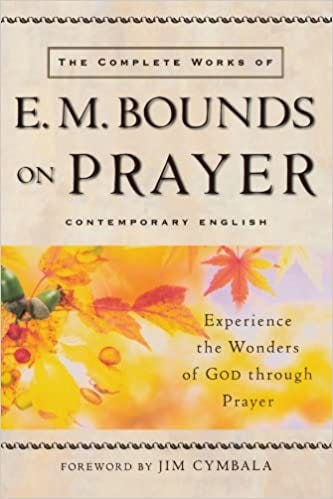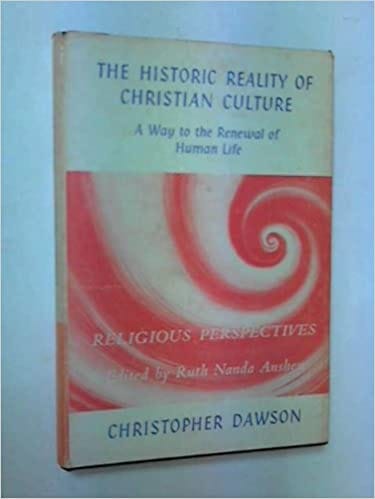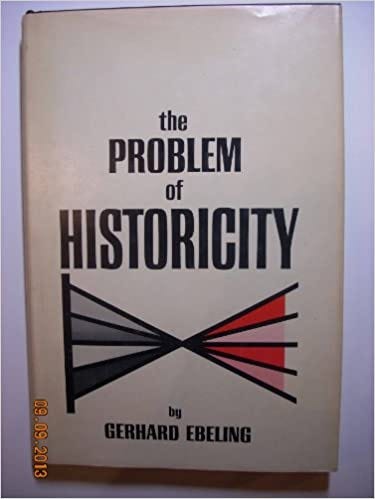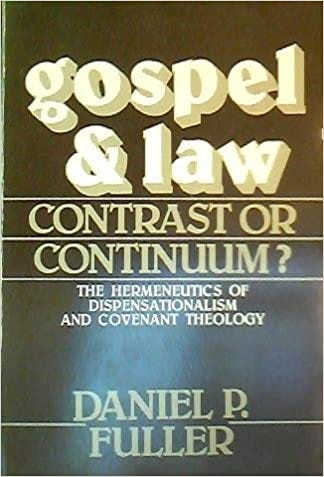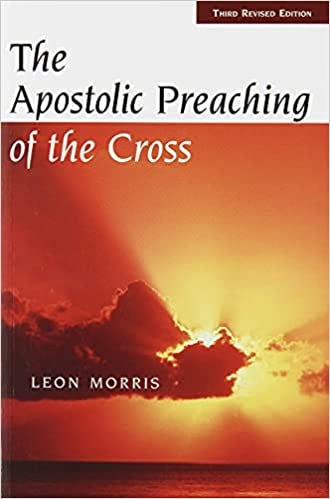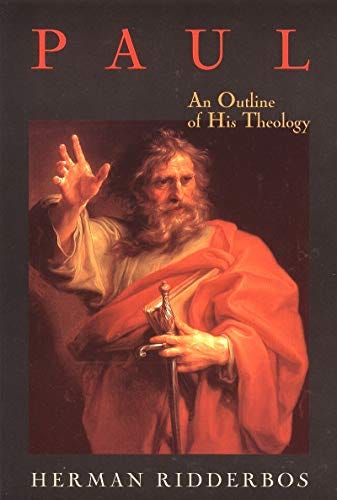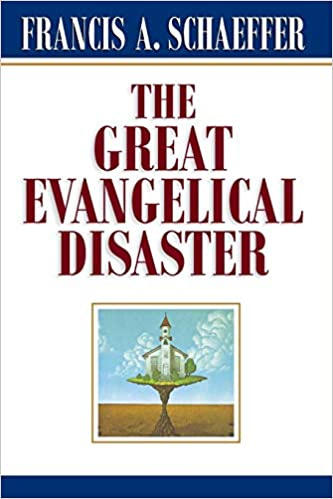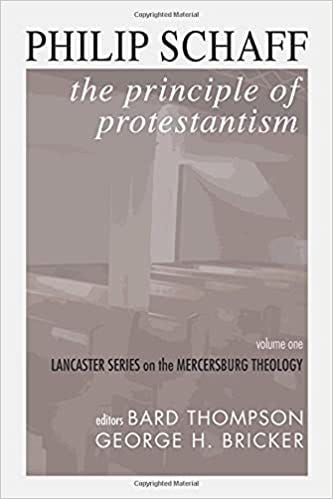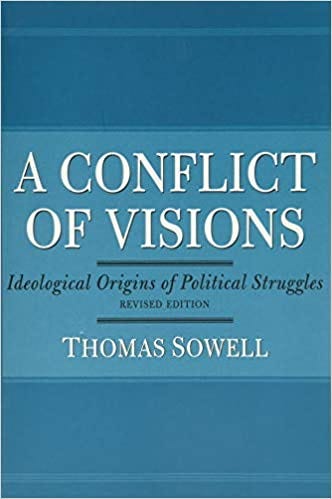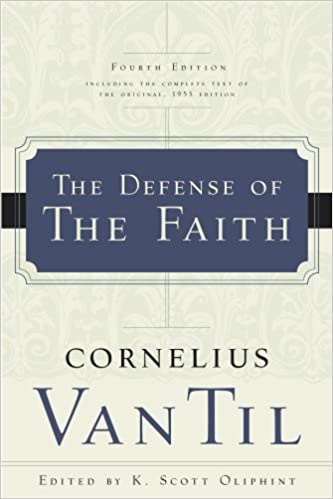Ten Books Most Formative in My Thinking
Books, like people, shape and reshape our lives. Here are the ones that shaped and reshaped mine.
Dear friends and supporters:
Recently my father suggested I write a book disclosing the authors and books that have most formed my thinking over the years. While that project is too ambitious right now, I thought an article addressing that topic might benefit my readers.
It was hard to pare down the list to ten. When asked who my life mentors have been, I respond, “One man and thousands of books.” That one man is my father, now 88 years old and faithful to the Lord, but the thousands of book titles are obviously beyond enumerating. This list must suffice. I tell friends who compliment my intelligence that I’m not all that bright, but I’m exceedingly well read.
Had I complied a list of 10 authors, it would have overlapped with this one but not merely duplicated it and included such diverse thinkers as Greg Bahnsen, Isaiah Berlin, Oscar Cullmann, Herman Dooyeweerd, John Frame, Richard Gaffin, Colin Gunton, Carl F. H. Henry, Walter Kaiser, Robert Nisbet, Jaroslav Pelikan, R. J. Rushdoony, Norman Shepherd, and A. W. Tozer.
I read most of the books below during the most intellectually impressionable time of my life, my early to mid-20s. I’m well aware that had I read other books, some of my beliefs, or at least emphases, might have been different. But I’m confident the Lord’s providence brought into my intellectual path just the books he wanted to me to read and absorb.
I’ve addressed these books alphabetically by author’s surname, and I’ve included a poignant citation from each book. Click on the book’s title to order the book.
The Complete Works of E. M. Bounds on Prayer, by E. M. Bounds
No book on this list has more influenced my thinking. It’s actually a collection of his 8 books and is worth its weight in gold. I’ll soon finish my fourth time reading it, and I hope to read it 20-25 more times before I die, marking up a new copy every time: my successors might wonder at 25 marked copies of the same title on my bookshelf.
No author in English wrote more words — or more potent, urgent, expectant, convicting, faith-drenched, God-saturated words — on prayer. This book is utterly life-transformational, and reading a chapter a day for the rest of your life would not be excessive.
“Four things let us ever keep in mind: God hears prayer, God heeds prayer, God answers prayer, and God delivers by prayer. These things cannot be too often repeated. Prayer breaks all bars, dissolves all chains, opens all prisons and widens all straits by which God’s saints have been holden.”
The Historic Reality of Christian Culture: A Way to the Renewal of Human Life, by Christopher Dawson
Dawson was the 20th century’s historian and theologian of Christian culture. I own and have read almost all of his books, but this slender volume (which summarizes many of his other books) settled for me the direction of the foundation and my life’s work that I launched, Center for Cultural Leadership. Dawson documents the rich Christian heritage of the West (East too), how and why it has been abandoned, and what Christians need to do to recover it.
Dawson was one of those thinkers, now largely extinct, with such a profound and wide knowledge of world history that he can write almost effortlessly with massive command of his field.
“[H]owever widely one separates the Word and the World, Christian faith and secular activity, Church and State, religion and business, one cannot separate faith from life or the life of the individual believer from the life of the community of which the individual is a member. Wherever there are Christians there must be a Christian society, and if a Christian society endures long enough to develop social traditions and institutions, there will be a Christian culture and ultimately a Christian civilization.”
The Problem of Historicity, by Gerhard Ebeling
This is the only book on this list written by a liberal. Ebeling was one of those much-feted 20th century German theologians who absorbed modern philosophy and adapted it to theology. However, this is not a theological text, and nothing he says casts doubt on the Bible, Jesus Christ, or Christian orthodoxy. Rather, he writes from the standpoint of the philosophical bent known as “transcendental idealism,” and his burden is to show “the conditions under which” (that’s idealistic language) theology is possible at all.
Ebeling is wanting to show that no matter how absolute the source(s) of theology is (are) — and for us Protestants it’s the Bible alone — we never encounter the Bible is any neutral or historically de-contextualized way. He argues for a now widely accepted theological assumption that all theology is creational and “incarnational”; the kind of people we are and the times in which we live influence our theological conclusions. We can’t escape this conditioning, and we shouldn’t try. It’s part of what it means to be faithful in our own unique generation, and it in no way denies the absolute character of the truth, Bible, and Faith.
“[T]he scriptural principle of the Reformation surrenders the unity of the church to the hermeneutical problem and stakes the unity of the church on the risk of existing without the security provided by a broadened concept of tradition; this is existence solely by virtue of the church’s link with the original testimony, a link which now is made entirely dependent upon the task of interpretation of this original witness.”
Gospel and Law: Contrast or Continuum? The hermeneutics of dispensationalism and covenant theology, by Daniel P. Fuller
Aside from the Van Til title below, no book gave me more theological whiplash: it completely turned me around as a young dispensationalist. Fuller was a rigorous NT exegete who argued not just that dispensationalism was wrong, but that covenant theology (as generally understood) is its theological parent — dispensationalism is just a more consistently developed form of covenant theology.
Fuller is especially concerned to refute the traditional law-gospel distinction, which sunders the unity of the Bible’s message. It’s true that we’re saved by faith and not by works, but the law-gospel distinction isn’t necessary to preserve that truth, and in fact it inflicts great injury on the biblical text.
Chapter 4 (“Pauls View of the Law”) offers a rigorously exegetical argument that Paul saw the gospel and law as two sides of the same coin.
“Since the connection [between faith and works] is inseparable, and genuine faith cannot but produce works, the Bible sometimes speaks of faith and sometimes of works when it speaks of the condition to be met in receiving the forgiveness of sins or subsequent blessings from God. So there is no need for establishing an elaborate division in Scripture as is done in covenant theology and dispensationalism.”
The Apostolic Preaching of the Cross, by Leon Morris
My parents instilled in me the skeleton of biblical soteriology (salvation doctrine), but Morris’ book (basically his doctoral dissertation) put flesh on the bones. A secondary goal of the book is to refute the sentimentalized views of atonement so popular with 19th and 20th century liberals.
Morris defends with great exegetical skill such truths as covenant, propitiation, atonement (penal substitution), the blood, and justification. He refuses to surrender an inch on the indisputably judicial aspects of salvation (including God’s law and wrath) so embarrassing to liberals.
Over the years his views have been subjected to withering attack (recently by faux evangelicals), but to me those assaults have spectacularly failed.
“[M]ere revelation as such has no power to free men from sin. What has the power to do this is the particular action which is revealed, a propitiatory action whereby the wrath of God is averted and men are brought into a new relationship with God, and this action is substitutionary.”
Paul: An Outline of His Theology, by Herman Ridderbos
My basic theological orientation has been shaped by the “redemptive-historical” school (Vos, Gaffin), and this book set the tone. I was a very young pastor and wanted grounding in Pauline theology, and this book seemed the best at the time. I now know that it’s the best for almost any time.
By “redemptive-historical” is meant the Bible is largely about what God has accomplished in history by Christ’s death and resurrection and less about his eternal decree or plan. Whether addressing church, law, baptism, or eschatology, Ridderbos saw Paul as orienting almost everything to our Lord’s death and resurrection.
Like Dan Fuller, Ridderbos saw Paul’s negative interpretation of the law as implying a Judaic misunderstanding of the revelatory law. Unlike other scholars (more recently N. T Wright, for example), Ridderbos understands the fundamental theological structure of Paul not to be the Jew-Gentile question but the First Adam-Second Adam question. The Christian life and, indeed, the hope of the world, rests on union with the crucified and risen Lord.
“The specific character of baptism into Christ’s death is not that time falls away or that the one baptized is made contemporaneous with Christ and his death, but that by baptism the believer becomes a sharer in what has taken place with Christ. Baptism does not make us die anew with Christ, but rather rests on the fact that he has died for us and we with him, because he is the second man, the last Adam, who when he died and rose substitutionally and representationally comprehended and united the many in himself.”
The Great Evangelical Disaster, by Francis Schaeffer
Schaeffer, a combination apologist/evangelist/prophet/thinker, had a momentous influence on 20th century evangelicalism, though, as it turned out, not momentous enough. He wasn’t quite a scholar, but he was an astute observer, and one of the first evangelicals to note the cultural shift away from Enlightenment rationalism to neo-pagan irrationalism, and he did this in an intellectually defensible way when many Christians were drinking deeply from the anti-intellectual fount.
This was the last book Schaeffer wrote and the first of his I read. I was 22 and read it right when it was published. This book showed how even in the 70s and 80s evangelicalism had compromised the Bible on inerrancy, abortion, homosexuality, socialism and other pressing issues. Today’s flimsy, accommodationist evangelicalism is not new.
This book helped cement my courage in defending an intellectually credible faith in times of conservatives’ compromise.
“It does seem to me that evangelical leaders, and every evangelical Christian, have a very special responsibility not to just go along with the “blue-jean syndrome” of not noticing that their attempts to be “with it” so often take the same forms as those who deny the existence or holiness of the living God.
Accommodation leads to accommodation — which leads to accommodation …”
The Principle of Protestantism, by Philip Schaff
In my 20s I spent a lot of time pondering theological development — how and why does theology change over time? I landed up somewhere between (1) a bare sola scriptura that dismissed the role of tradition in theology and (2) a traditional theology that eventually blunts the Bible. Schaff helped me find that place. As the great church historian of the 19th century, Schaff knew better than to claim we today should (or even could) read right from the Bible without considering how our forebears interpreted it. Much of our basic theology is an inheritance, not rewritten from scratch every generation. Alternatively, tradition must never undermine or detract from the Bible’s final authority.
Schaff wanted to show that the original, magisterial Reformation held both truths together together to produce what he called Protestant Catholicism.
I’ve never found cause to abandon this balanced construction, and that’s one reason I’m an unashamed Protestant.
This [Christian] tradition therefore is not a part of the divine word separately from that which is written, but the contents of scripture itself as apprehended and settled by the church against heresies past and always new appearing; not an independent source of revelation but the one fountain of the written word, only rolling itself forward in the stream of church consciousness.
A Conflict of Visions: Ideological Origins of Political Struggles, by Thomas Sowell
Sowell is the only self-professed unbeliever on this list. Despite his “jaundiced eyes” (see Van Til below), God’s common grace allowed him to arrive at some astute socioeconomic conclusions.
Sowell’s self-imposed burden was to show why political thinkers from across the spectrum arrived at such dramatically different views on such basic topics as equality, power, justice, and knowledge. In some cases it isn't just that their views are different; these words themselves mean nearly opposite things to their political counterparts. For example, for conservatives, “equality” means something different than it does to progressives. This is why arguments about it are often so unproductive.
Sowell posits these deep differences are due to what he term “visions,” almost precognitive and instinctual views of the world. The two main visions he laid out are the constrained (what he later call the “tragic”) vision and the unconstrained vision (later labeled “the vision of the anointed”). The constrained vision sees man as limited by his own nature and reality, and that he can only hope to fashion a life and society which takes this constraining reality into account.
The unconstrained vision, on the other hand, sees man’s capacity for social amelioration as nearly infinite. The only thing that holds him back is his ignorance, timidity, or vice.
Sowell shows how the leading philosophers and political thinkers of the West have generally come down on the side of one of these two visions, though he does acknowledge occasional “hybrid” visions.
Sowell helped me to see that sociopolitical disputes, like theological disputes (as per Van Til below), are generally presuppositional. Although Sowell did not mean by visions precisely what Van Til did by presuppositions, the effect is similar. We tend to think in wholes, not in parts, and our vision of reality shapes all that we see.
“The constrained vision is a tragic vision of the human condition. The unconstrained vision is a moral vision of human intentions, which are viewed as ultimately decisive. The unconstrained vision promotes pursuit of the highest ideals and the best intentions. By contrast, the constrained vision sees the best as the enemy of the good — a vain attempt to reach the unattainable being seen as not only futile but often counterproductive, while the same efforts could’ve produced a viable and beneficial trade-off.”
The Defense of the Faith, by Cornelius Van Til
When I began this book I was an Arminian dispensational evidentialist, and when I finished I was a Calvinistic covenantal presuppositionalist. Van Til was a bold, fearless, rigorous thinker and writer. He was convinced that the Reformed faith was the closest version of Christianity to the biblical pattern, and he believed that the faith was a package deal; you don't “climb up one doctrine at a time,” as his Arminian contemporary Clark Pinnock once wrote. You take it as truth, and then you recognize that it makes sense of everything in the world.
Van Til was a good example of the Protestant Catholicism I mentioned above. He believed that the Christian (Reformed!) tradition as it was handed down to him conveyed in substance biblical truth, but he was unafraid to challenge certain aspects of it he believed were faulty, notably, its apologetic method. Van Til was convinced the method known as evidentialism (the “classical” view) was simply wrong, and he aimed to amend it.
This book heavily influenced my thinking, but two points in particular stand out: the unbeliever is not only morally fallen; he’s also intellectually fallen. Therefore, his thinking is not neutral, and we can’t appeal to him on the basis of that supposed neutrality. We must challenge him with the truth of the gospel and trust the Holy Spirit to open his eyes.
Second, the Christian faith is a system, and we can’t surrender some parts or augment them with alien views and expect to remain faithful to the Lord. The great “intellectual challenge of the gospel,” as he called it, wasn’t this specific biblical doctrine versus that specific anti-biblical doctrine, but the entire Christian system (“worldview”) versus all alternatives.
“When man became a sinner he made of himself instead of God the ultimate or final reference point. And it is precisely this presupposition, as it controls without exception all forms of non-Christian philosophy, that must be brought into question. If this presupposition is left unquestioned in any field all the facts and arguments presented to the unbeliever will be made over by him according to his pattern. The sinner has cemented colored glasses to his eyes which he cannot remove. And all hs yellow to the jaundiced eye.”
Will you consider a tax-deductible donation to CCL via PayPal or Venmo? Or mail a check to CCL, Box 100, Coulterville, CA 95311. God uses you to keep us going — and expanding.
Conclusion and Personal
I'm at my word limit, so I'll need to stop very soon. When I was a young man somebody told me that the difference I’d be five years from then would be due largely to the books I read and the people I met. It was an oversimplification but contained a great deal of truth. Books, like people, shape and reshape our lives.
Sharon and I are headed to Vancouver on Monday for our older son Richard’s ordination. There won’t be a newsletter next week, therefore, but I hope to have one out the following weekend.
Please continue to support CCL generously. I need you.
And pray that God ends the horrendous suffering in Ukraine. Pray also for Vladimir Putin, that God will smite him hip and thigh and he’ll soon be worm food.
For the King and His justice,
Center for Cultural Leadership
More great stuff:
The Center for Cultural Leadership site is here.
My Amazon author page (print and digital) is here.
You can find my sermons and lectures at my YouTube channel.
Sign up to get my blog updates here.
Here’s my Twitter feed.
If you want to get the free exclusive hard copy publication Christian Culture, please send me a Facebook private message.
The CCL phone number is 831-420-7230.
The mailing address is:
Center for Cultural Leadership
P. O. Box 100
Coulterville, CA 95311





